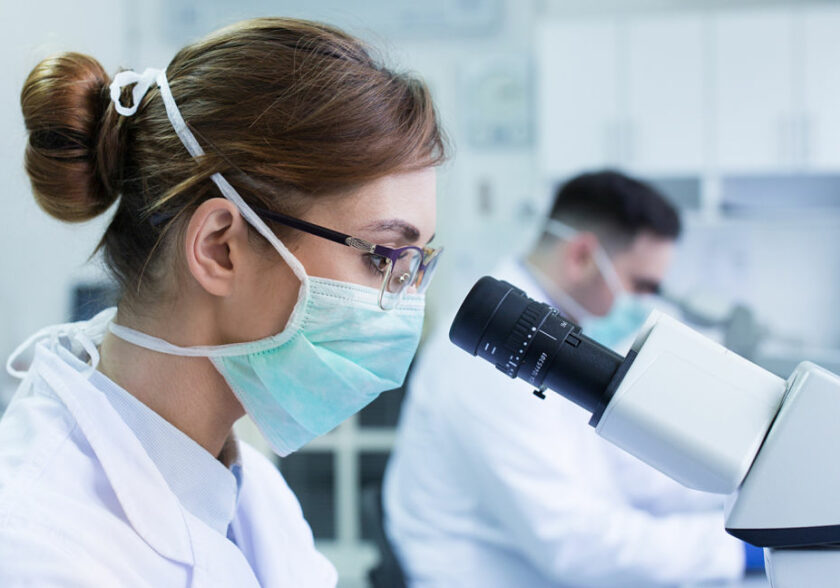What is clinical analysis?
Clinical analysis is a medical speciality that uses in-depth knowledge of human pathophysiology and analysis methods for biological samples of human origin to generate useful information for the clinic in the following aspects:
- Distinguish health and disease states
- Help diagnose diseases correctly
- Contribute to establishing their prognosis
- Facilitate clinical follow-up
- Ensure the effectiveness of the treatment applied
Clinical analysis specialists are a fundamental component of the multidisciplinary team that, alongside the other clinical specialists, is involved in the clinical decision process that determines disease prevention, health promotion and patient care.
Which patients is it for?
Because the clinical analysis speciality participates in the clinical decision process, health promotion and patient care, this service is aimed at all types of patients with or without an existing condition.
Main conditions and diseases
- Allergies
- Endocrine
- Cardiac
- Haematological
- Liver
- Immune
- Metabolic
- Oncological
- Kidney
Main diagnostic resources and technology
- UV/VIS spectrophometry
- Nephelometry
- Turbidimetry
- Electrochemiluminescence (ECL)
- Electrochemistry
- Electrophoresis
- InmunocromatografíaImmunochromatography
- Flow cytometry
- Microscopy
- Cytogenetics
- Real-time PCR
- Blood and NGS sequencing
We provide patients and doctors with the latest technologies and advances in clinical analysis, with highly qualified staff with extensive experience in the field of biological diagnosis.
Main diagnostic tests
In addition to routine blood or urine tests, your doctor may order more specific clinical tests to confirm or rule out a suspected diagnosis. There are different types of clinical analyses, depending on the functions of the organism or organs to be examined:
- Haemogram: Accurately measures the concentration of the different cell types in the blood and allows specialists to accurately identify different types of conditions: anaemia, leukemia, lymphoma, etc.
- Lipid profile: A lipid profile is performed when the total cholesterol is elevated in a general analysis, in order to establish the proportion of HDL and LDL.
- Liver profile: A blood test designed to assess the liver’s functioning.
- Kidney profile: Assesses kidney function by measuring substances such as creatinine or urea.
- Thyroid profile: Performed to assess the functioning of the thyroid gland and confirm or rule out a diagnosis of hyper or hypothyroidism.
- Faeces: Faecal tests are performed if there is a suspected viral, bacterial or parasitic infection or intestinal conditions such as Crohn’s disease or ulcerative colitis. It is also routinely done from the age of 45 to screen for digestive cancer with the faecal occult blood test.
Special services
We have a team of experienced and highly qualified professionals as well as the most advanced technology, offering a high-quality, agile service.
Why come to our clinic?
Our centres have a wide range of techniques, with state-of-the-art diagnostic and analytical tools.
The professionals that make up the service have extensive professional experience and a high degree of specialisation. In addition, the team works in a coordinated manner, optimising resources and offering quick response
times.
FAQs
Can I eat and drink before having a test?
If you’re having a biochemistry analysis, you will need to not eat or drink anything for at least 8 hours leading up to the test. However, there are studies for which you don’t need to fast, such as urine cultures, abnormal and sediment or genetic tests among others. If in doubt, check with the laboratory.
How long do test results take to come back?
Most results come out in 24–48 hours, but it depends on the requested tests.
How do I access my reports?
From the Vithas app or website and in person in the laboratory.
Does Vithas have an app?
Yes, the Vithas app, where you can manage various tasks.
Can I drop in any time for my analysis?
It depends on the Vithas hospital you’re going to. Ask at your nearest centre.
Do all tests require a prescription?
Medical prescription is not strictly necessary, although it is advisable. Private patients can request an analysis by asking our staff.
How often should I have a lab check-up?
You don’t need to have tests done very often, but it is advisable to have an annual check-up to see your health status. Your doctor will tell you how often to take tests and prescribe them.
Do I need to fast before a pregnancy test?
The urine and blood pregnancy test does not require fasting.








